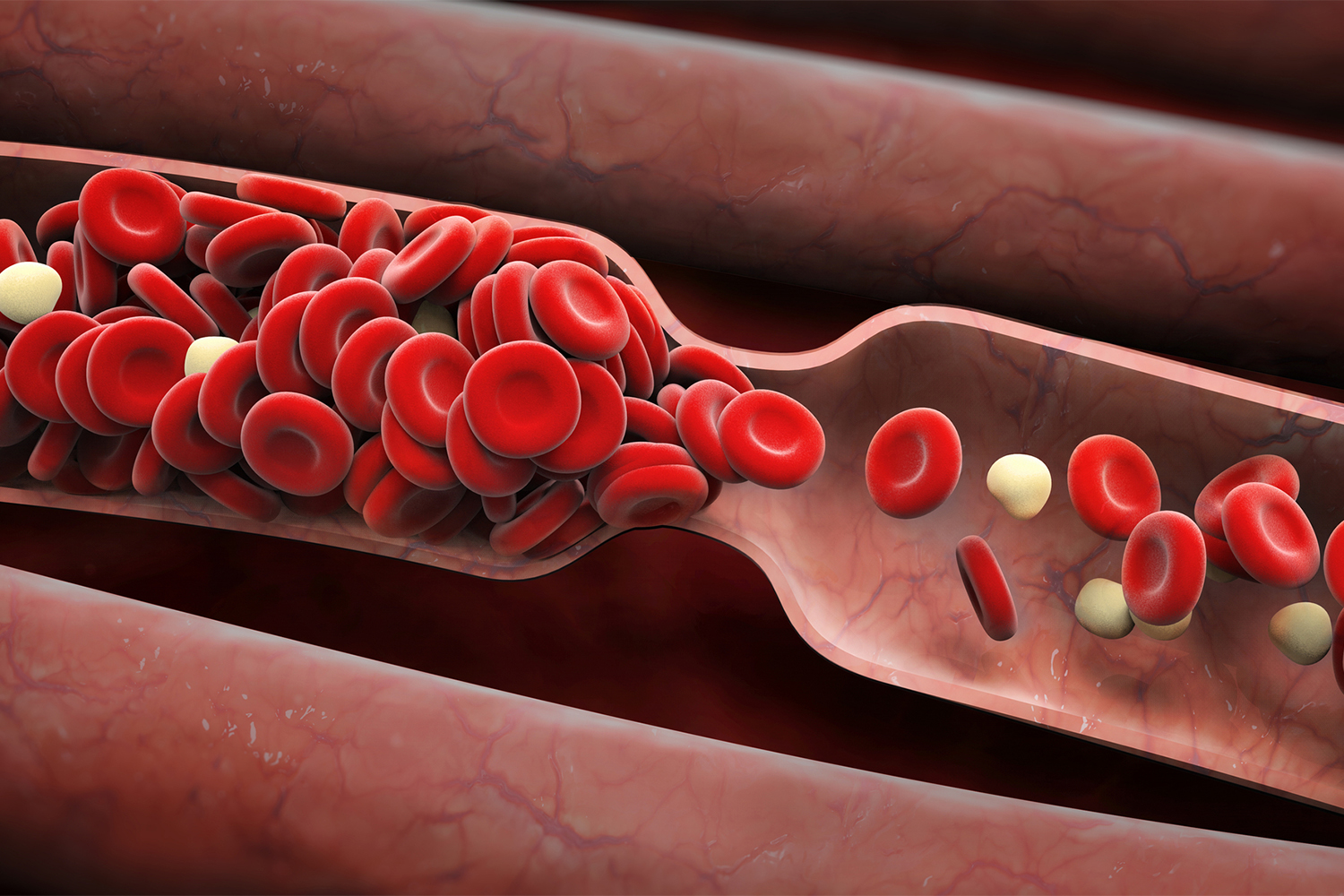COVID-19 raises the risk of arterial blood clots for up to a year after infection in some people, according to several studies.
The risk appears to be highest in the first week after diagnosis and in people who have been hospitalized because of the infection.
The Risks of Blood Clots
Arterial blood clots can cause heart attacks and strokes. But a July 2024 study “involving nearly the whole adult population of England,” found that the rates of both heart attacks and strokes were lower in people who had been vaccinated for COVID-19.
“We studied COVID-19 vaccines and cardiovascular disease in nearly 46 million adults in England and found a lower incidence of common cardiovascular diseases, such as heart attacks and strokes, following each vaccination than before or without vaccination,” said lead author Samantha Ip, MD.
How Does COVID-19 Increase Risk?
According to experts at the Cleveland Clinic, the body’s immune response to COVID-19 infection may be responsible for the increase in blood-clot risk.
When the immune system kicks in, inflammation increases.
That’s usually a good thing for recovery, but the reaction may cause clotting in some people.
Risk Levels and Reduction
People are at higher risk of blood clots due to COVID-19 with:
- coronary artery disease
- diabetes
- high blood pressure
- obesity
- blood disorders such as:
- a sickle cell disease
- thalassemia
According to Cleveland Clinic pulmonologist Wayne Tsuang, MD, PhD, the likelihood can be reduced with:
- anticoagulant medications
- compression socks
- exercise
“Ask your doctor about the best approach,” Dr. Tsuang advised.
“We have strategies that can help prevent clots.”





